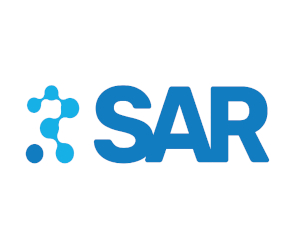Los niveles séricos de Interleucina 22 e Interleucina 6 disminuyen luego del tratamiento en pacientes con artritis reumatoidea
Resumen
Introducción: la artritis reumatoidea se caracteriza por inflamación de la membrana sinovial debido al infiltrado de células inmunitarias que secretan citocinas relacionadas a perfil Th17 como IL-22 e IL-6. La dinámica de estas citocinas durante el tratamiento permanece incomprendida. El objetivo fue evaluar los niveles séricos y en líquido sinovial (LS) de IL-22 e IL-6, correlacionarlos con diferentes parámetros bioquímicos y clínicos y medir sus cambios post-tratamiento. Material y métodos: se estudiaron 77 pacientes con AR y 30 controles. A 30 pacientes se los evaluó nuevamente luego de 3 meses de tratamiento y a 12 se les extrajo LS. Se midió VSG, PCR, FR, anti-CCPhs, IL-22 e IL-6. Se evaluó la actividad con DAS28 y respuesta al tratamiento con criterios EULAR.Citas
I. Smolen JS, Aletaha D, McInnes IB. Rheumatoid arthritis. Lancet. 2016; 388(10055):2023-2038.
II. Smolen JS, Aletaha D, Barton A, Burmester GR, Emery P, Firestein GS, et al. Rheumatoid arthritis. Nat Rev Dis Primers. 2018;4: 18001
III. Srirangan S, Choy EH. The role of Interleukin 6 in the pathophysiology of rheumatoid arthritis. Ther Adv Musculoskelet Dis. 2010; 2(5):247-56.
IV. Zhong W, Zhao L, Liu T, Jiang Z. IL-22-producing CD4+T cells in the treatment response of rheumatoid arthritis to combination the-rapy with methotrexate and leflunomide. Sci Rep. 2017; 7:41143.
V. Zhao M, Yishuo L, Xiao W. Anti-apoptotic effect of interleukin-22 on fibroblast-like synoviocytes in patients with rheumatoid arthri-tis is mediated via the signal transducer and activator of transcription 3 signaling pathway. International Journal of Rheumatic Diseases 2016; 20(2):214-224.
VI. Mateen S, Zafar A, Moin S, Khan AQ, Zubair S. Understanding the role of cytokines in the pathogenesis of rheumatoid arthritis. Clin Chim Acta. 2016;455:161-71
VII. Edrees AF, Misra SN, Abdou NI. Anti-tumor necrosis factor (TNF) therapy in rheumatoid arthritis: correlation of TNF-alpha serum level with clinical response and benefit from changing dose or frequency of infliximab infusions. Clin Exp Rheumatol. 2005; 23:469-74.
VIII. Usón J, Balsa A, Pascual-Salcedo D, Cabezas JA, Gonzalez-Tarrio JM, Martín-Mola E, Fontan G. Soluble Interleukin 6 (IL-6) Receptor and IL-6 Levels in Serum and Synovial Fluid of Patients with Different Arthropathies. J Rheumatol. 1997;24(11):2069-75.
IX. Luchetti MM, Balloni A, Gabrielli A. Biologic Therapy in Inflammatory and Immunomediated Arthritis: SafetyProfile. Curr Drug Saf. 2016; 11(1):22-34.
X. Harrington LE, Hatton RD, Mangan PR, Turner H, Murphy TL, Murphy KM, et al. Interleukin 17-producing CD4+ effector T cells develop via a lineage distinct from the T helper type 1 and 2 lineages. Nat Immunol. 2005; 6(11):1123–32.
XI. Shen H, Goodal JC, Hill Gaston JS. Frequency and phenotype of peripheral blood Th17 cells in ankylosing spondylitis and rheumatoid arthritis. Arthritis Rheum. 2009;60(6):1647–56.
XII. Yue C, You X, Zhao L, Wang H, Tang F, Zhang F, et al. The effects of adalimumab and methotrexate treatment on peripheral Th17 cells and IL-17/IL-6 secretion in rheumatoid arthritis patients. Rheumatol Int. 2010;30: 1553–7.
XIII. Gullick NJ, Abozaid HS, Jayaraj DM, Evans HG, Scott DL, Choy EH, et al. Enhanced and persistent levels of interleukin (IL)-17+CD4+ T cells and serum IL-17 in patients with early inflammatory arthritis. Clin Exp Immunol.2013; 174(2):292–301.
XIV. Velhoen M, Hocking RJ, Atkins CJ, Locksley RM, Stockinger B. TGF-beta in the context of an inflammatory cytokine milieu supports de nove differentiation of IL-17-producing T cells. Immunity. 2006; 24(2):179–89.
XV. Yang L, Anderson DE, Baecher-Allan C, Hastings WD, Bettelli E, Oukka M, et al. IL-21 and TGF-b are required for differentiation of human Th17 cells. Nature. 2008; 454(7202):350–2.
XVI. Volpe E, Servant N, Zollinger R, Bogiatzi SI, Hupé P, Barillot E, et al. A critical function for transforming growth factor-beta, interleukin 23 and proinflammatory cytokines in driving and modulating human T(H)-17 responses. Nat Immunol. 2008; 9(6):650–7.
XVII. Zhao L, Jiang Z, Jiang Y, Ma N, Zhang Y, Feng L. IL-22+CD4+ T cells in patients with rheumatoid arthritis. Int J Rheum Dis. 2013; 16(5):518-26.
XVIII. Duhen T, Geiger R, Jarrossay D, Lanzavecchia A, Sallusto F. Production of interleukin 22 but not interleukin 17 by a subset of human skin-homing memory T cells. Nat Immunol. 2009; 10(8):857-63.
XIX. Xie Q, Huang C, Li J. Interleukin-22 and rheumatoid arthritis: Emerging role in pathogenesis and therapy. Autoimmunity. 2015; 48(2):69-72.
XX. Miyazaki Y, Nakayamada S, Kubo S, Nakano K, Iwata S, Miyagawa I, et al. Th22 Cells Promote Osteoclast Differentiation via Production of IL-22 in Rheumatoid Arthritis. Front Immunol. 2018; 9:2901
XXI. Leipe J, Schramm MA, Grunke M, Baeuerle M, Dechant C, Nigg AP, et al. Interleukin 22 serum levels are associated with radiographic progression in rheumatoid arthritis. Ann Rheum Dis. 2011;70 (8):1453-7.
XXII. Wieli^ska J, Dratwa M, ^wierkot J, Korman L, Iwaszko M, Wysocza^ska B, et al. IL-6 gene polymorphism is associated with protein serum level and disease activity in Polish patients with rheumatoid arthritis. HLA. 2018:92 Suppl 2:38-41
XXIII. McInnes IB, Schett G. Cytokines in the pathogenesis of rheumatoid arthritis. Nat Rev. 2007; 7:429-442
XXIV. Dayer JM, Choy E. Therapeutic targets in rheumatoid arthritis: the interleukin-6 receptor. Rheumatology (Oxford). 2010; 49:15–24.
XXV. Tanaka T, Narazaki M, Kishimoto T. IL-6 in inflammation, immunity, and disease. Cold Spring Harb Perspect Biol. 2014;6:a016295.
XXVI. McInnes IB, Schett G. The pathogenesis of rheumatoid arthritis. N Engl J Med. 2011;365(23):2205-19.
XXVII. Ogata A, Kato Y, Higa S, Yoshizaki K. IL-6 inhibitor for the treatment of rheumatoid arthritis: a comprehensive review. Mod Rheumatol. 2019; 29: 258–267.
XXVIII. Köhler BM, Günther J, Kaudewitz D, Hanns-Martin Lorenz. Current Therapeutic Options in the Treatment of Rheumatoid Arthritis. J Clin Med. 2019; 8(7):938.
XXIX. Burmester GR, Feist E, Dörner T. Emerging cell and cytokine targets in rheumatoid arthritis. Nat Rev Rheumatol. 2014; 10(2):77-88
XXX. Ogata A, Hirano T, Hishitani Y, Tanaka T. Safety and efficacy of tocilizumab for the treatment of rheumatoid arthritis. Clin Med Insights Arthritis Musculoskelet Disord. 2012; 5:27-42.
XXXI. Uciechowski P, Dempke WCM. Interleukin-6: A Masterplayer in the Cytokine Network. Oncology. 2020; 98(3):131-137
XXXII. Choy EH, De Benedetti F, Takeuchi T, Hashizume M, John MR, Kishi-moto T. Translating IL-6 biology into effective Treatments. Nat Rev Rheumatol. 2020; 16(6):335-345.
XXXIII. Smolen JS, Landewé RBM, Bijlsma JWJ, Burmester GR, Dougados M, Kerschbaumer A, et al. EULAR recommendations for the management of rheumatoid arthritis with synthetic and biological disease-modifying antirheumatic drugs: 2019 update. Ann Rheum Dis. 2020; 79(6):685-699.
XXXIV. Aletaha D, Neogi T, Silman AJ, Funovits J, Felson DT, Bingham CO, et al. 2010 Rheumatoid arthritis classification criteria: an American College of Rheumatology/European League Against Rheumatism collaborative initiative. Arthritis Rheum. 2010; 62(9):2569-81
XXXV. Prevoo MLL, van’t Hof MA, Kuper HH, van de Putte LBA, van Riel PLCM. Modified disease activity scores that include twenty-eight-joint counts. Development and validation in a prospective longitudinal study of patients with rheumatoid arthritis.Arthritis Rheum. 1995; 38: 44–48.
XXXVI. Fransen J, van Riel PL. The Disease Activity Score and the EULAR response criteria. Rheumat Dis Clin North Am.2009; 35:745–57.
XXXVII. Aizu M, Mizushima I, Nakazaki S, Nakashima A, Kato T, Murayama T, et al. Changes in Serum Interleukin-6 Levels as Possible Predictor of Efficacy of Tocilizumab Treatment in Rheumatoid Arthritis. Modern Rheumatology. 2018: 28(4):592-598.
XXXVIII. Reyes-Castillo Z, Palafox-Sánchez CA, Parra-Rojas I, Martínez-Bonilla GE, del Toro-Arreola S, Ramírez-Dueñas MG,e t al. Comparative analysis of autoantibodies targeting peptidylarginine deiminase type 4, mutated citrullinated vimentin and cyclic citrullinated peptides in rheumatoid arthritis: associations with cytokine profiles, clinical and genetic features. Clin Exp Immunol. 2015;182(2):119-31
XXXIX. Mitra A, Raychaudhuri SK, Raychaudhuri SP. Functional role of IL-22 in psoriatic arthritis. Arthritis Res Ther. 2012; 14(2):R65
XL. da Rocha Jr LF, Branco Pinto Duarte AL, Tavares Dantas A, Ataíde Mariz H, da Rocha Pitta I, Lins Galdino S, et al. Increased Serum Interleukin 22 in Patients with Rheumatoid Arthritis and Correlation with Disease Activity. J Rheumatol. 2012;39(7):1320-5.
XLI. Zhang L, Li JM, Liu XG, Ma DX, Hu NW, Li YG, et al. Elevated Th22 Cells Correlated with Th17 Cells in Patients with Rheumatoid Arthritis. J Clin Immunol. 2011; 31(4):606-14.
XLII. Zhang L, Li Yg, Li Yh, Qi L, Liu Xg, Yuan Cz, et al. Increased Frequencies of Th22 Cells as well as Th17 Cells in the Peripheral Blood of Patients with Ankylosing Spondylitis and Rheumatoid Arthritis. PLoS One. 2012; 7(4):e31000
XLIII. 43. Tekeo^lu I, Harman H, Sa^ S, Altındi^ M, Kamanlı A, Nas K. Levels of serum pentraxin 3, IL-6, fetuin A and insulin in patients with rheumatoid arthritis. Cytokine. 2016; 83:171-175.
XLIV. Zheng Y, Sun L, Jiang T, Zhang D, He D, Nie H .TNF^ Promotes Th17 Cell Differentiation through IL-6 and IL-1^ Produced by Monocytes in Rheumatoid Arthritis. J Immunol Res. 2014; 2014:385352.
XLV. Abdel Meguid MH, Hasan Hamad Y, Shafek Swilam R, Barakat MS. Relation of interleukin-6 in rheumatoid arthritis patients to systemic bone loss and structural bone damage. Rheumatol Int. 2013; 33(3):697-703
XLVI. Crilly A, McInness IB, McDonald AG, Watson J, Capell HA, Madhok R. Interleukin 6 (IL-6) and soluble IL-2 receptor levels in patients with rheumatoid arthritis treated with low dose oral methotrexa-te. J Rheumatol. 1995; 12:224-6.
XLVII. Hambardzumyan K, Bolce RJ, Wallman JK, van Vollenhoven RF, Saevarsdottir S. Serum Biomarkers for Prediction of Response to Methotrexate Monotherapy in Early Rheumatoid Arthritis: Results from the SWEFOT Trial. J Rheumatol. 2019; 46(6):555-563
XLVIII. Straub RH, Müller-Ladner U, Lichtinger T, Schölmerich J, Menninger H, Lang B. Decrease of interleukin 6 during the first 12 months is a prognostic marker for clinical outcome during 36 months treatment with disease-modifying anti-rheumatic drugs. Br J Rheumatol. 1997; 36(12):1298-303.
XLIX. Ikeuchi H, Kuroiwa T, Hiramatsu N, Kaneko Y, Hiromura K, Ueki K, et al. Expression of interleukin-22 in rheumatoid arthritis: potential role as a proinflammatory cytokine. Arthritis Rheum. 2005;52(4):1037-46.
L. Kyoung-Woon K, Hae-Rim K, Jin-Young P, Jin-Sil P, Hye-Jwa O, Yun-Ju W, et al. Interleukin-22 Promotes Osteoclastogenesis in Rheumatoid Arthritis Through Induction of RANKL in Human Synovial Fibroblasts. Arthritis Rheum. 2012; 64(4):1015-23
LI. Perry MG, Richards L, Harbuz MS, Jessop DS, Kirwan JR. Sequential synovial fluid sampling suggests plasma and synovial fluid IL-6 vary independently in rheumatoid arthritis. Rheumatology (Oxford). 2006; 45(2):229-30.
LII. Houssiau FA, Devogelaer JP, Van Damme J, de Deuxchaisnes CN, Van Snick J. Interleukin-6 in synovial fluid and serum of patients with rheumatoid arthritis and other inflammatory arthritides. Arthritis Rheum. 1988; 31(6):784-8.
LIII. Plank MW, Kaiko GE, Maltby S, Weaver J, Tay HL, Shen W, et al. Th22 Cells Form a Distinct Th Lineage from Th17 Cells In Vitro with Unique Transcriptional Properties and Tbet-Dependent Th1 Plasticity.
LIV. J Immunol. 2017; 198(5):2182-2190.
LV. Tangye SG, Ma CS, Brink R, Deenick EK. The good, the bad and the ugly – TFH cells in human health and disease. Nat Rev Immunol. 2013; 13:412–26.
LVI. Hashizume M, Mihara M. The Roles of Interleukin-6 in the Pathogenesis of Rheumatoid Arthritis. Arthritis. 2011; 2011:765624. 56. H. Helal AM, Shahine E, Hassan MM, Hashad DI, Moneim RA. Fatigue in rheumatoid arthritis and its relation to interleukin-6 serum level. The Egyptian Rheumatologist. 2012; 34: 153–157.
Derechos de autor 2020 A nombre de los autores. Derechos de reproducción: Sociedad Argentina de Reumatología

Esta obra está bajo licencia internacional Creative Commons Reconocimiento-NoComercial-SinObrasDerivadas 4.0.






